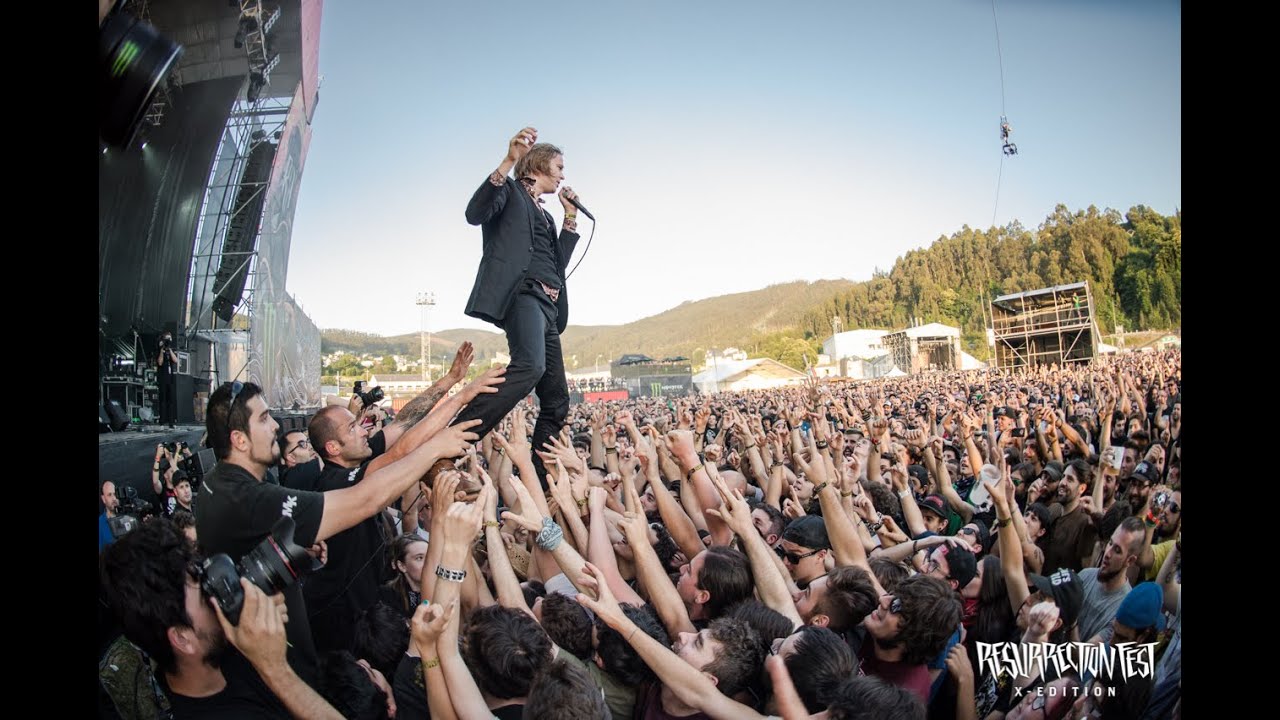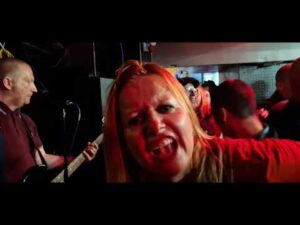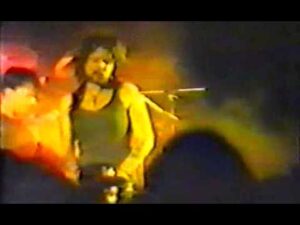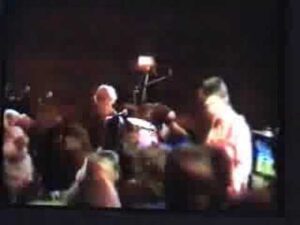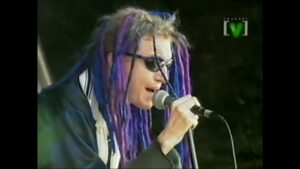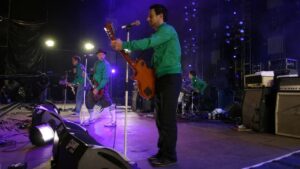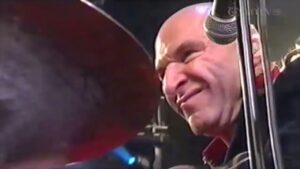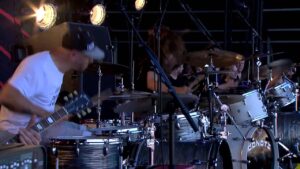Formation & Members
Refused, the legendary Swedish punk/hardcore band, was formed in 1991 in Umeå, Sweden. The band was initially made up of vocalist Dennis Lyxzén, guitarist Jon Brännström, bassist Magnus Björklund, and drummer David Sandström. Over the years, the lineup saw several changes, with Björklund being replaced by Kristofer Steen on guitar, and bassist Magnus Flagge joining to complete the quintessential lineup. The band’s formation was deeply rooted in the burgeoning hardcore scene of the early ’90s, characterized by a rebellious spirit and a commitment to challenging the status quo.
Musical Style & Characteristics
Refused’s music is a dynamic blend of hardcore punk, post-hardcore, and art punk, marked by its aggressive energy and innovative approach. The band is known for its politically charged lyrics, which critique capitalism, fascism, and other social issues, reflecting their leftist ideology. Musically, Refused pushed boundaries by incorporating elements of jazz, electronic, and experimental sounds into their hardcore roots. Their intricate guitar work, complex song structures, and Lyxzén’s impassioned vocal delivery set them apart from their contemporaries, making them a pioneering force in the evolution of punk music.
Key Works & Discography
Refused’s discography is both concise and impactful. Their debut album, This Just Might Be… the Truth (1994), introduced their raw sound and socio-political themes. However, it was their third album, The Shape of Punk to Come: A Chimerical Bombination in 12 Bursts (1998), that cemented their status as icons. This album is often hailed as a masterpiece, blending punk, hardcore, and experimental elements. Tracks like “New Noise” and “The Deadly Rhythm” showcase their innovative style and have become anthems in the punk community. Despite its critical acclaim, the album initially struggled commercially, but it has since gained a cult following.
Influence on Other Bands/Scenes
Refused’s influence extends far beyond their modest discography. Their radical approach to punk music inspired a new generation of bands and musicians across various genres. Bands like Rise Against, Gallows, and The Dillinger Escape Plan have cited Refused as a significant influence on their music. The band’s ability to merge punk ethos with avant-garde musical experimentation paved the way for the post-hardcore and mathcore scenes, encouraging artists to push the boundaries of their creative expression. Refused’s impact is also felt in the broader cultural landscape, inspiring activism and the integration of political discourse into music.
Breakups or Reunions
Refused’s career has been marked by dramatic breakups and triumphant reunions. The band famously disbanded in 1998, shortly after the release of The Shape of Punk to Come, citing creative differences and burnout. This split was announced in a manifesto titled “Refused Are Fucking Dead,” which criticized the commercialization of the punk scene. After more than a decade of silence, Refused shocked fans by reuniting in 2012 for a series of live performances, including a memorable set at the Coachella Valley Music and Arts Festival. This reunion rekindled interest in their music and legacy. In 2015, they released Freedom, their first album in 17 years, followed by War Music in 2019, proving that their creative fire still burned bright.
Current Reputation & Legacy
Today, Refused is revered as one of the most influential bands in the punk and hardcore genres. Their innovative approach to music and unwavering commitment to their ideals have earned them a lasting legacy. They are celebrated not only for their groundbreaking albums but also for their ability to inspire change and challenge societal norms. Refused’s music continues to resonate with new audiences, ensuring their place in the annals of punk history. Their live performances are lauded for their intensity and energy, drawing fans from around the world who are eager to experience their powerful sound firsthand.
Conclusion
Refused’s journey is a testament to the power of music as a vehicle for change and expression. From their formation in the early ’90s to their influential works and subsequent reunions, the band has left an indelible mark on the punk and hardcore scenes. Their ability to blend political activism with innovative music has inspired countless artists and fans, ensuring that their legacy endures. As they continue to create and perform, Refused remains a beacon of authenticity and rebellion in a world that often seeks to stifle such voices. Their story is one of resilience, creativity, and the relentless pursuit of artistic and ideological integrity.

